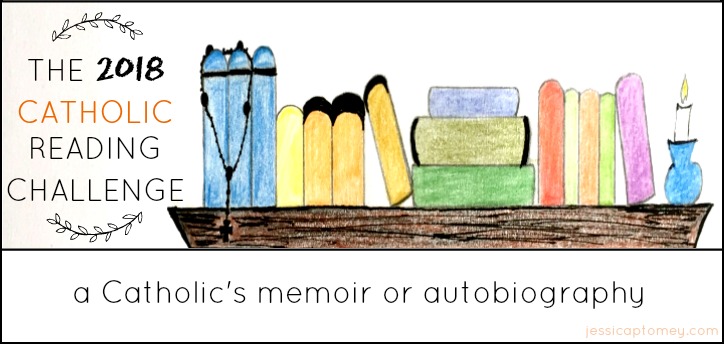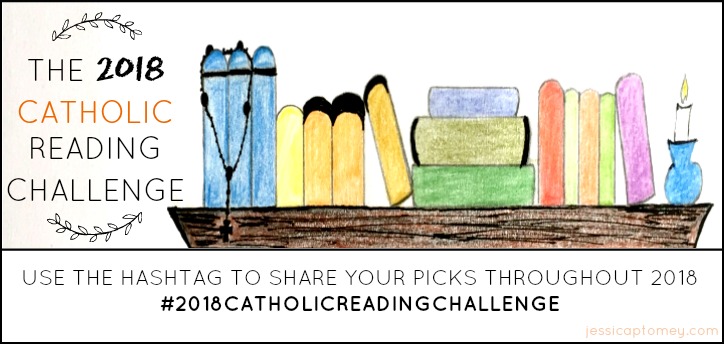We are two thirds of our way through the year already! How is your 2018 Catholic Reading Challenge going? I am continuing to share what I am reading for the challenge with you. This pick paired wonderfully with my pick for a biography of a prominent Catholic…

Category: “a Catholic’s memoir or autobiography”
My Pick: The Long Loneliness by Dorothy Day
I wanted to read two books about Dorothy Day this year, because she was someone about whom I previously knew very little. Toward the beginning of the year I read Jim Forest’s biography of Day, Love is the Measure. You can read my take on that book here. I finally got around to Day’s own words about her life and work. It is really interesting to read a biography and autobiography of someone in close succession. There was much repeated history of her life, but Forest’s account was certainly a more detailed history. Day doesn’t overshare when it comes to places that her story intersects with the stories of others, that are not hers to tell, as she puts it.
Her autobiography focuses on what drew her to the Catholic Church and what drew her to the work of her life; and most of the book is really an account of what that work was like and what relationships animated it and inspired it. One person who greatly influenced Dorothy’s perspective and worked along side of her was Peter Maurin. She spends much of the last third of the book recounting how his philosophies helped form her own and the direction of the The Catholic Worker, the paper she edited.
One thing I quite respect about Day is that she is a figure who can’t be put in a box. She is an enigma. It would be hard for any group — except Catholics — to “claim” her. And then, she is unlike most Catholics I know. She is unlike most people, I would say. She really was someone who lived a radical expression of her faith, and all of her work centered around acts of charity. Since before her conversion, she was drawn to those in poverty; she felt one with them. There is an element of Christ’s gospel message about the “poor in spirit” that Day seemed to be especially endowed with the grace to identify and live out authentically.
Essentially, what the work of Dorothy’s life amounts to is the cultivation of community, and this was a vital aspect of the Catholic faith for both her and Maurin. The circulation and writing of The Catholic Worker, the civil rights protests, the houses of hospitality and communal farms — all of these efforts were the fruit of a community. And it was not a manufactured sense of community that is so often attempted by contemporary non-profits and churches. These communities grew organically.
I recently shared a whole list of quotes from The Long Loneliness; so I won’t include a bunch in this post. But I do want to share one here that illustrates the theme of community that marked her life:
“I had heard many say that they wanted to worship God in their own way and did not need a Church in which to praise Him, nor a body of people with whom to associate themselves. But I did not agree to this. My very experience as a radical, my whole make-up, led me to want to associate myself with others, with the masses, in loving and praising God” (p. 139).
Dorothy lived in “communion” with others; she lived in communion with the poor, with people that often get passed over. Those are the companions that she chose, along with many other passionate individuals who shared her perspective and vision. Hers is a life that inspires, that has left an imprint on history. But it is also an example challenging for us to follow, because so much of our system of living is structured in ways that keep us avoiding the poor and anyone who makes us uncomfortable. I pray for grace to change my system of living, if only a little at a time. I long for communion and community. I believe that we all do; it is the thing for which we were created.
What did you read for “a Catholic’s memoir or autobiography”?

Copyright 2018 Jessica Ptomey
